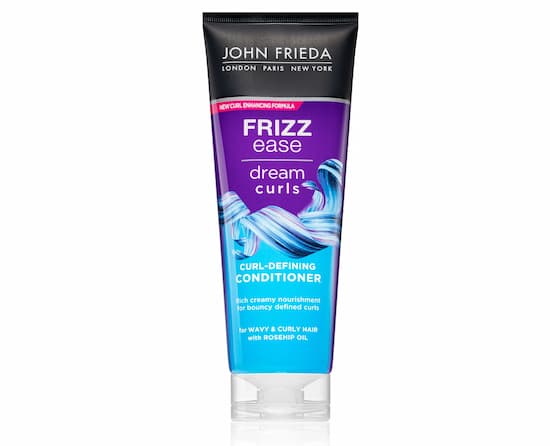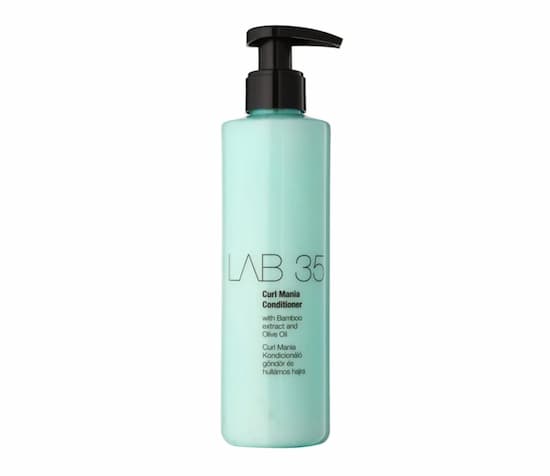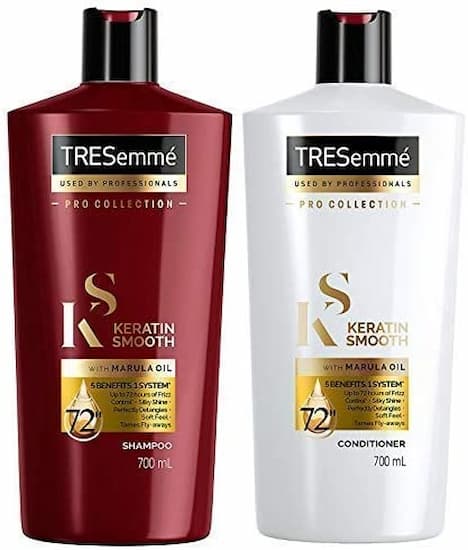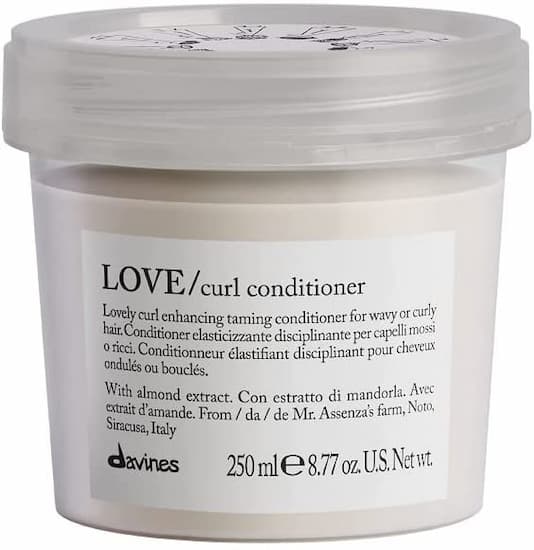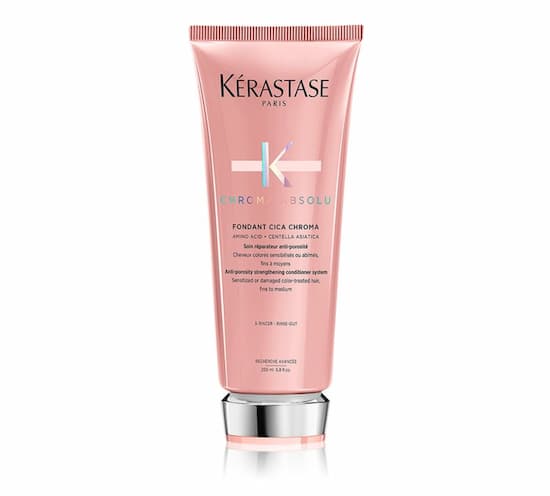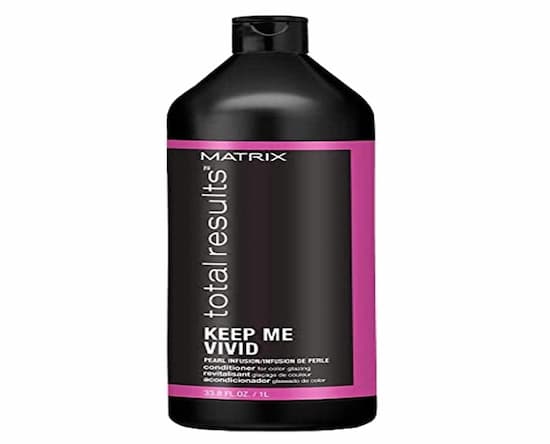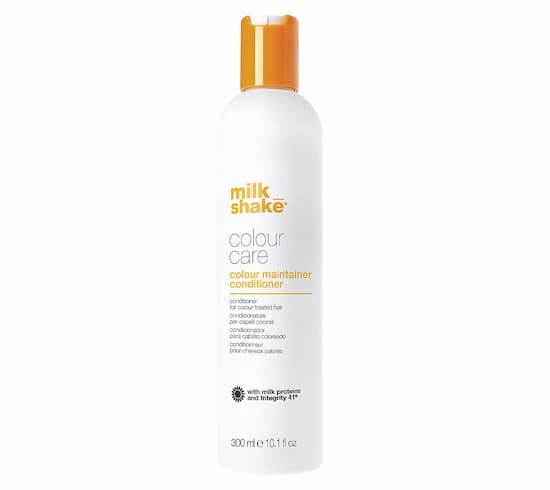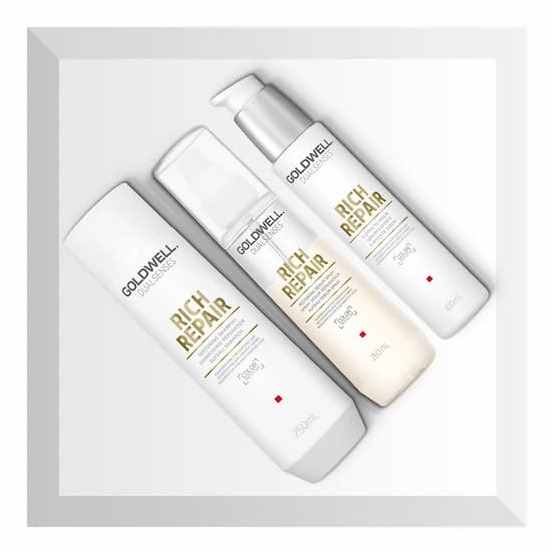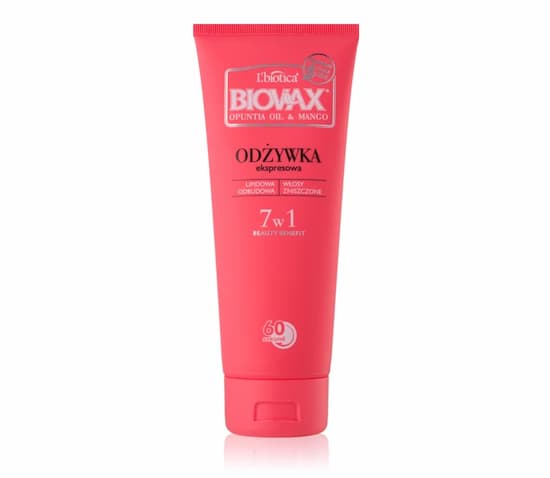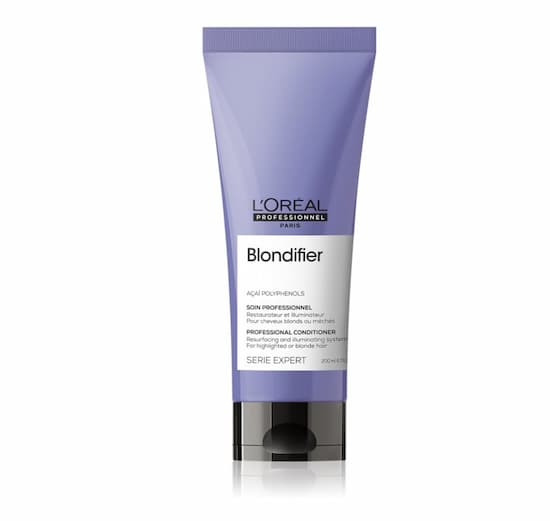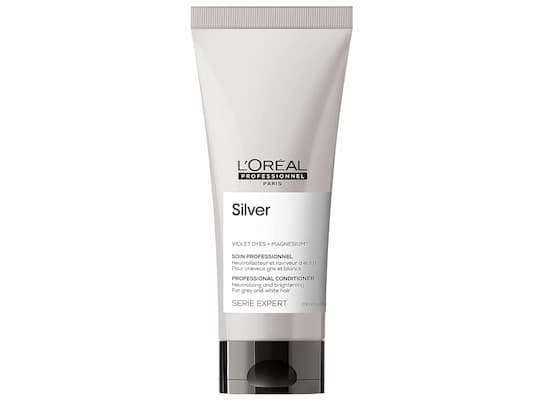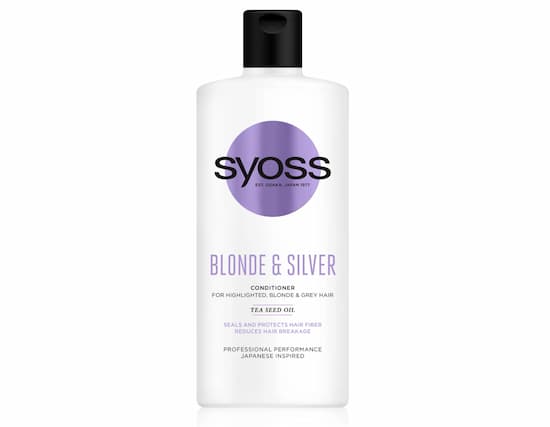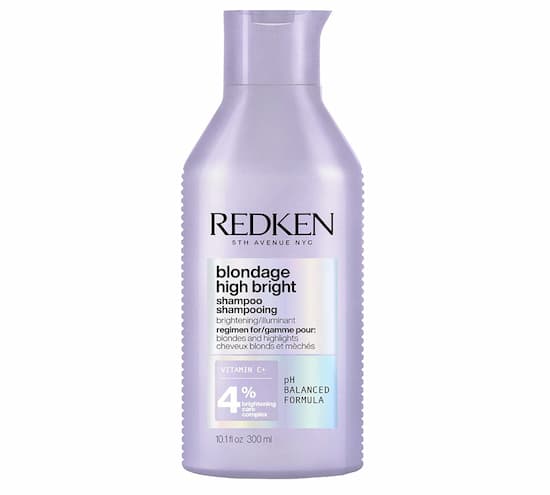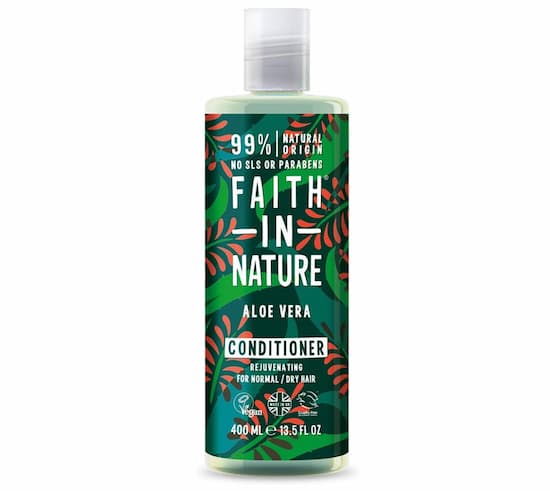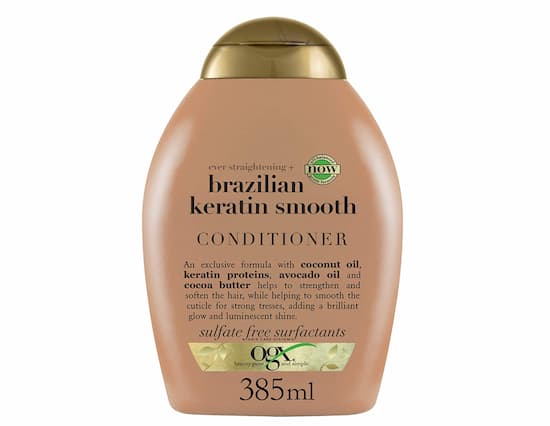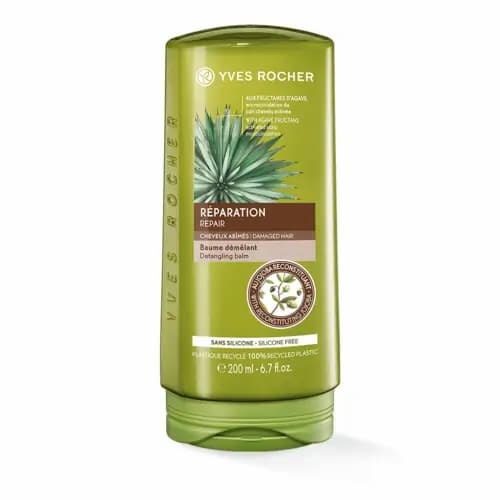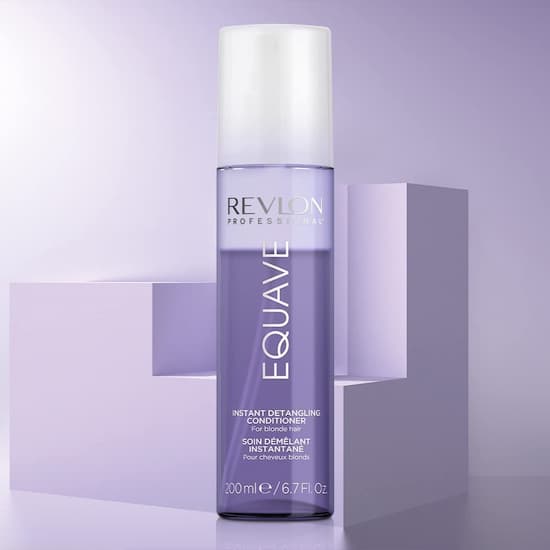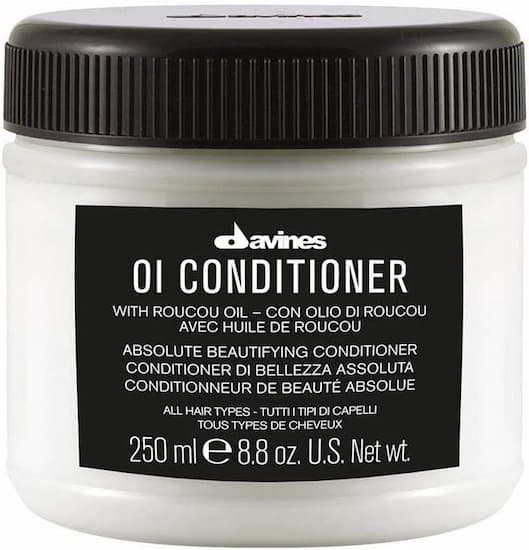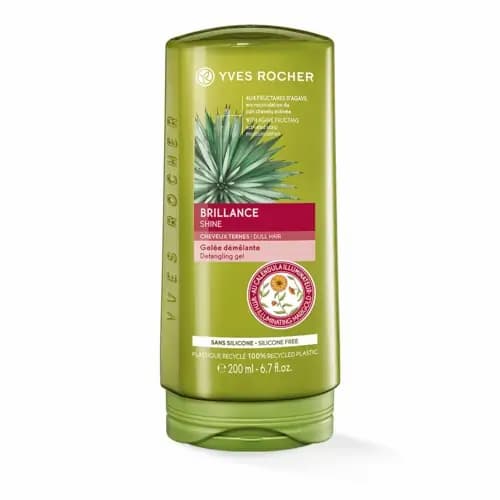Hair conditioners: The 20 best daily care products of 2025
Do you want to look after your hair effectively? Find out which hair conditioners the experts recommend!


Learn more about our editorial process
.

Learn more about our editorial process
.

Learn more about our editorial process
.

Learn more about our editorial process
.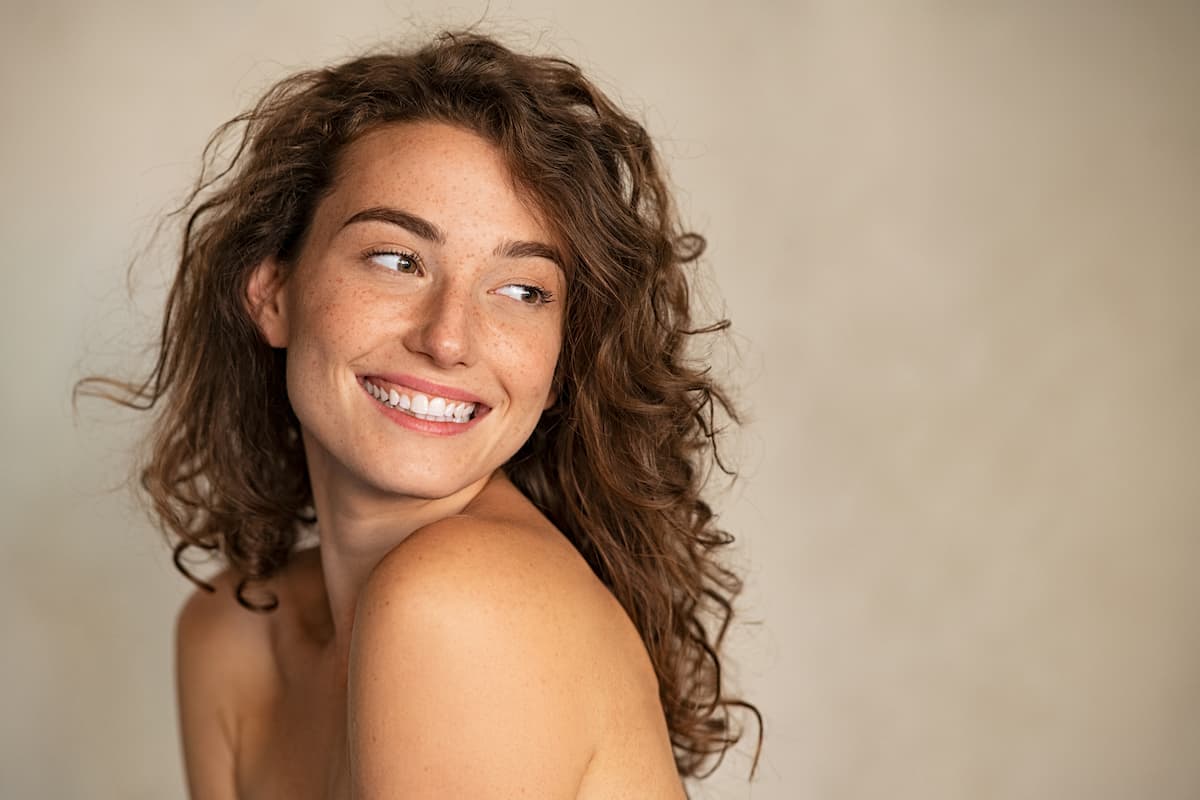
Why you can trust us
Articles on Natu.Care are written based on scientific research, data from government websites and other reliable sources. The texts are written in cooperation with doctors, nutritionists and other health and beauty experts. Articles are reviewed before publication and during significant updates.
.Learn more about our editorial process
.Information about advertisements
Content on Natu.Care may contain links to products from the sale of which we may receive a commission. When creating content, we adhere to high editorial standards and take care to be objective about the products discussed. The presence of affiliate links is not dictated by our partners, and we select the products we review ourselves completely independently.
.Learn more about our terms and Conditions
.If you want to enjoy silky, shiny, healthy and strong hair, be aware that you won't achieve lasting results in one day. Effective hair care involves not only the best shampoos, but also hair masks, oils and conditioners.
Particularly if you frequently use tools and accessories to style your hair, conditioner is the most important investment that you should think carefully about.
From this article you will learn:
- What are the best hair conditioners recommended by experts .
- Why hair care is so important and how to do it effectively .
- How to choose the perfect hair conditioner and which ingredients to pay special attention to .
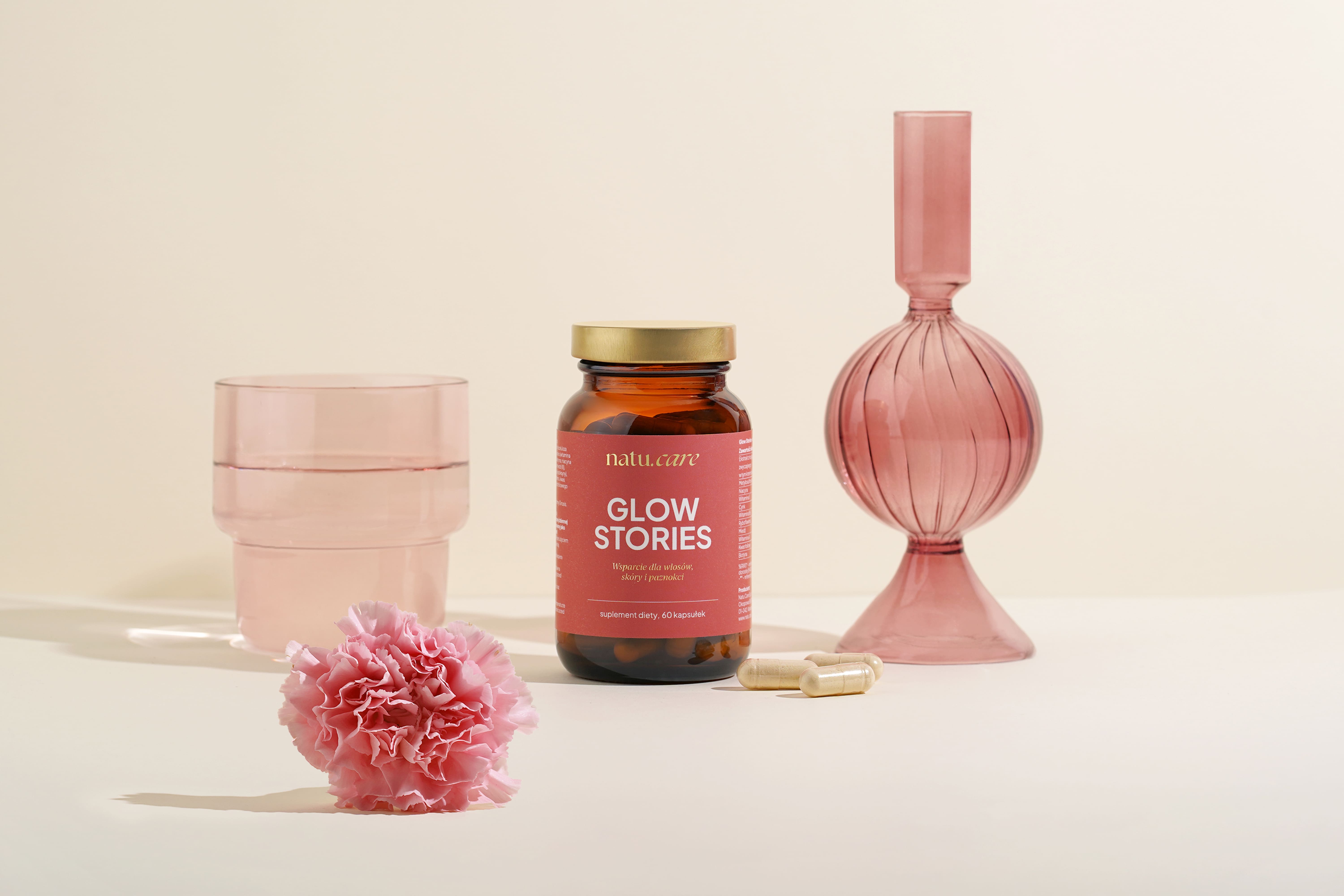
Odkryj, co dla Twojej urody może zrobić Natu.Care Glow Stories
Skóra, włosy, paznokcie: Glow Stories
Wesprzyj prawidłowy stan skóry, włosów i paznokci i ochroń komórki przed stresem oksydacyjnym!
Sprawdź cenę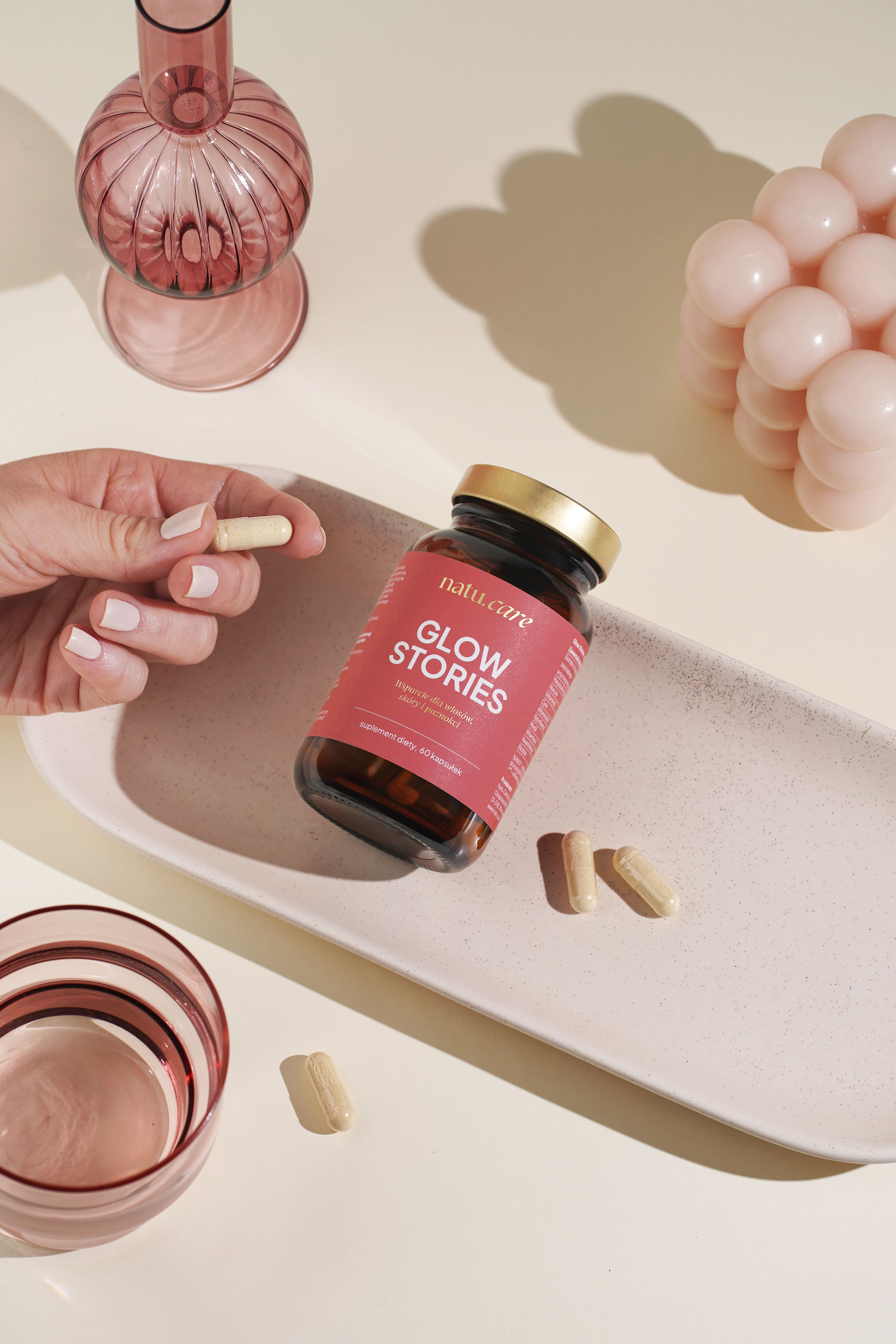
Glow Stories to formuła aktywnych składników, które zostały starannie dobrane wedle najnowszych badań naukowych. Znajdziesz w nich biotynę, cynk i miedź pielęgnujące zdrowie włosów i promiennej cery. Ponadto cynk jest odpowiedzialny także za zachowanie zdrowych paznokci. Mądra suplementacja zadba o Twoje piękno od środka.Julia Skrajda, dietetyk kliniczny
See also:
- Conscious hair care
- Home hair care
- All about hair oiling
- The best emollient conditioners
- Hair toners by Loreal
- Hair toners by Palette
- Hair toners by Syoss
- Hair toners by Matrix
- Hair toners by Wella .
Best hair conditioners - TOP 13 products ranking
.
Let's be clear straight away: there is no single best hair conditioner. Every hair type has its own individual needs, so together with cosmetologist, Catherine Srebr, we have prepared a list of the best products by hair characteristics.
In preparing our ranking, we took the following into account:
.
- .
- the ingredients and active ingredients used, .
- reasoning and confirmation of action in studies, .
- price, .
- customer reviews, .
Take a look at it and give your hair new life!
Conditioners for curly hair
.
The basis of working with curly hair is regularity and consistency in following certain procedures.
First of all, decide whether your curly hair suits you on a day-to-day basis and determine your course of action based on this. If you want it to look healthy, bouncy and defined, forgo using a straightening iron or blow-drying without a diffuser. This is the only way to find common ground with curly hair and figure out which hair products to reach for..
 .
.
Katarzyna SrebrCosmetologist
.The primary goal of curl care is to moisturise, close the cuticle and protect the hair from water escape. To do this, use oils, conditioners and masks, as well as the right cleansing products that take into account the needs of both hair and scalp.
Product description
Active ingredients: malic acid, olive oil, jojoba oil, glycerin
Expert opinion
It is a conditioner with a strongly moisturizing and smoothing effect. Makes combing easier and restores softness to the hair. The composition includes, among others: glycine, which is a component of keratin - the main building block of hair. Therefore, it is worth using it to regenerate and rebuild the structure of hair. In addition, it will weigh down thin, loose and unruly hair.

Katarzyna SrebrCosmetologist
Product description
Active ingredients: citric acid, olive oil, niacinamide, pantothenic acid, vitamin C derivatives, antioxidants
Expert opinion
A very good budget option for people struggling with frizz and static electricity in their hair. It is worth paying attention to the content of vitamins from group B and emollient, thanks which will make your hair shiny, smooth and shiny, and your curls will be naturally highlighted.

Katarzyna Srebr Cosmetologist
Product description
Active ingredients: keratin hydrolyzate, lactic acid, marula oil
Expert opinion
This is not a product exclusively for curly hair, but due to its formula it can handle them perfectly. The hair will be visibly moisturized after the first use. The conditioner works well in combination with oil, which will additionally protect your hair against damage caused by external factors.

Katarzyna SrebrCosmetologist
Product description
Active ingredients: glycerin, panthenol, citric acid, sweet almond fruit extract, vitamin E
Expert opinion
Davines Love Almond is a premium emollient conditioner. Perfect for curly and wavy hair that is difficult to define the curl. If your hair is unruly, rough, devoid of vigor, it often tangles and breaks— this product may be a hit. After the first application, styling curls becomes easier.

Katarzyna SrebrCosmetologist
See also how you can take even better care of your hair:
- Hair loss supplement [Ranking]
- Hair loss supplements [Ranking]
- Hair vitamins [Ranking]
- Hair loss shampoos
- Hair loss
- Hair toners
- Hair collagen
- Biotin for hair
- Vitamin B12
- Collagen
- Zinc
Conditioners for coloured, dry and damaged hair
.
Hair is a dead structure that will not rebuild itself without external help. Often their condition deteriorates as a result of frequent styling with a flat iron, curling iron or hairdryer or too infrequent trimming of the ends, perms or colouring.
Hair colouring is a very important part of hair care.
Colouring is a chemical process that can dry out, cause micro-damage and make hair dull and brittle. Despite this, women are very keen to colour their hair. For some, it is a way to quickly change their image, for others it is a necessity and the only way to cover grey highlights - each of these motives is valid.
I would also encourage you not to expose coloured hair to the sun - UV rays cause colours to fade more quickly. High temperatures when drying your hair after washing are also inadvisable, as they severely weaken the hair follicles and can also cause greasiness. If you already expose your hair to the sun's rays, be sure to use a special UV filter cosmetic on your hair..
 .
.
Piotr Sierpinski celebrity hairdresser and stylist
There is no point in being persuaded to stop this type of treatment - provided that hair and scalp are properly cared for both before and after colouring..
 .
.
Katarzyna Srebrcosmetologist
Product description
Active ingredients: Asian meniscus extract, arginine, tartaric acid, lactic acid, acetic acid
Expert opinion
Strongly regenerative and strengthening conditioner dedicated to hair with defects, dry and weakened by chemical factors. It is worth using it immediately after coloring to extend the durability of the color. The product is also perfect for people who dye their hair regularly and often. it will be a substitute for professional regenerative treatments.

Katarzyna Srebr Cosmetologist
Product description
Active ingredients: citric acid, acetic acid, pearl powder, glycerin
Expert opinion
I especially recommend the conditioner for bleached hair that is difficult to comb wet or dry. Efficientlydisciplinates. hair, smoothes and softens it. When used regularly, it is intended to protect the color from fading and discoloration. It is not burdensome, so people with thin hair can use it without any worries. Moreover, it has a pleasant smell and is very efficient.

Katarzyna Srebr Cosmetologist
Product description
Active ingredients: milk proteins, sunflower seed oil, citric acid, glycerin
Expert opinion
The conditioner not only perfectly smoothes the hair, but also helps maintain the proper level of moisture. After use, the hair is exceptionally silky and regenerated. I recommend it especially after unsuccessful and unskillful coloring or permanent wave.

Katarzyna Srebr Cosmetologist
Product description
Active ingredients: intraLipid complex, microPROtec complex, flexPROtec complex, pashmina silk proteins
Expert opinion
Perfect for brittle, rough and damaged hair. importantly, not only at the ends, but along its entire length. The proteins and amino acids contained in the composition, penetrating deep between the hair cuticles, are responsible for deep regeneration. The technologies used provide additional thermal protection and protection against UV radiation.

Katarzyna Srebr Cosmetologist
Product description
Active ingredients: prickly pear oil, mango butter, glycerin, D-panthenol
Expert opinion
Biovax masks and conditioners have been very popular for years. This product will be useful for hair prone to severe dryness and split ends. Facilitates combing, nourishes and regenerates, and additionally has a beautiful scent that stays on the hair for a long time.

Katarzyna Srebr Cosmetologist
Conditioners for blonde and grey hair
.
Lightening is one of the most aggressive procedures you can subject your hair to, which is why blonde hair care products are given higher expectations. The same is true for grey hair preparations.
Hair care products should be as moisturising as possible. It is the escape of water from the hair structure that is the main problem with bleached hair..
 .
.
Katarzyna SrebrCosmetologist
.An additional difficulty lies in maintaining a cool hair shade. Over time, blonde and grey hair falls into warm, yellow tones, mostly undesirable.
Conditioners for people with bleached hair should contain keratin, emollients and blue and purple pigments to neutralise unwanted reflections.
Opis produktu
Active ingredients: coconut oil, vitamin E, acai berry extract
Opinia eksperta
Professional conditioner strengthening bleached hair smoothes, regenerates and ensures immediate cooling of the shade. It has a light consistency, perfectly softens and facilitates combing. After use, blonde hair acquires an extraordinary three-dimensionality.

Katarzyna Srebr Cosmetologist
Product description
Active ingredients: lactic acid, tartaric acid, babassu oil, salicylic acid, glycerin
Expert opinion
One of the strongest brightening conditioners for home use available on the market. I recommend it especially to people with gray, platinum or practically white hair. It is perfect for neutralizing yellow tones, perfectly covering the hair structure and acting as a bandage for chemical and physical damage.

Katarzyna Srebr Cosmetologist
Product description
Active ingredients: salicylic acid, glycine, tea tree oil, citric acid
Opinia eksperta
Toning conditioner with excellent value for money. The vegan formula deserves recognition – contains at least 90% ingredients of organic origin. Frizzy, unruly and difficult to style hair will like it. It is very efficient and comes in a large package (up to 440 ml!).

Katarzyna Srebr Cosmetologist
Product description
Active ingredients: vitamin C, chelating agents, Brightening Care Complex – illuminating complex, citric acid, glycerin
Expert opinion
A proposition for people who want their bleached hair to look like after a visit to the hairdresser after each wash. It copes well with unwanted yellow shades, moisturizes intensively, does not weigh down, adds shine and cares. Attention – the product is so strong that I do not recommend using it immediately after coloring treatments, but only after a few washes with delicate cosmetics.

Katarzyna Srebr Cosmetologist
Other hair conditioners worth your attention
Product description
Smoothes and prevents hair from frizzing. Natural ingredients (at least 99%) nourish and give them shine.
Product description
Straightens and smoothes hair fibers, strengthens them and gives them shine thanks to its rich formula with keratin proteins.
Product description
The conditioner regenerates and moisturizes even very damaged hair, making it stronger and less brittle.
Product description
Two-phase spray conditioner intended for blonde hair - natural and dyed. It facilitates combing, moisturizes and regenerates damaged fibers and gives the hair a silky shine.
Product description
Universal conditioner for all hair types. Its main ingredient is roucou tree seed oil. Thanks to beta-carotene and other antioxidants, it effectively strengthens hair and protects against external factors.
Product description
The conditioner smoothes the hair fiber, strengthens its structure and nourishes it. As many as 99% of the ingredients are of natural origin.
See how else you can take extra care of your beauty:
- Anti-Wrinkle Cream [Ranking] .
- Facial sunscreen [Ranking] .
- Eye cream [Ranking] .
- BBBCreams [Ranking]
- Nail conditioners [Ranking] .
- Nail vitamins [Ranking] .
- Hand cream [Ranking] .
- Collagen for wrinkles
- Facial collagen
- Vitamin A ointment
- CeraVe creams
- Nuxe oils
Why is daily hair care and conditioning so important?
.
Beautiful and healthy hair does not come out of nowhere. It cannot be achieved overnight. Cosmetologist, Katarzyna Srebr advises:
.
Hair is exposed to factors that weaken it every day. The most common are temperature changes, UV radiation, too low or too high air humidity. Therefore, daily hair care is just as important as daily skin care. The key is to be systematic - this is the only way to achieve long-lasting results..
 .
.
Katarzyna SrebrCosmetologist
.You can't do it without the right cosmetics.
.
How to choose the perfect conditioner for your hair
.
Certain products should be chosen primarily based on your hair type, as well as the problems you face and the results, you want to achieve.
The hair conditioners you use on a daily basisand have primarily:
.
- .
- improve the condition of the hair, .
- help with detangling, .
- minimise the effect of frizz, .
- reduce static electricity, .
- hydrate and regenerate strands, .
What ingredients to look for in hair conditioners?
.
Hair with different characteristics needs different ingredients to meet its specific needs. Be sure to read the label before you buy and check that you find these compounds and substances.
Oily hair
.
Seek products rich in natural antibacterial and cleansing ingredients (e.g. lemonand). It's also worth looking for aloe vera - it calms the scalp and helps with seborrhoeic dermatitisand.
.
Hair with a tendency to fall out
.
Your saviour may be products with biotin in the formulation (think supplementation too). Studiesand have shown that it promotes hair growth and prevents hair loss. Rosemary oil improves circulation and promotes hair growthand.
Curly hair
.
First and foremost look for argan oil in conditioners to restore moisture, softness and bounce .
Thin and weakened hair
.
In conditioners for such hair, it is worth looking for, among other things, caffeine, which stimulates and promotes hair growth .
Dry and brittle hair
.
Products with avocado and with olive oil will effectively moisturise dry and brittle hair. In this case, it is also worth reaching for conditioners with argan oil. One study from 2017 found that shea butter improves condition, strengthens hair and makes it more resistant to breakage.
Frizzy hair
.
For this hair type, look for products rich in, among other things, coconut oil, which will nourish it and help fight frizzand.
Lightened and damaged hair
.
Hair is negatively affected by colouring, heat styling and inadequate care. In order to combat these negative factors, it is worth stocking up on products that will help smooth, soften and strengthen hair. These will include, first and foremost, moisturising oils or glycerine, which, thanks to its ability to retain moisture, is extremely beneficial to the condition of the scalpand. And as we all know, healthy hair starts "in" the scalp.
.
Wavy hair
.
Similar to curly hair, the key to proper care, will be to moisturise first and foremost. Therefore, look for ingredients such as avocado, argan oil, coconut oil or jojoba oiland.
Of course, these are just the most popular ones.
.
Every hair is different and it is not possible to create one 'set' of ingredients for all. It is certainly worth looking in conditioners for substances that occur naturally in the hair, i.e. keratin, amino acids and ceramides..
 .
.
Katarzyna SrebrCosmetologist
.Conditioners and hair care products are one thing. You can also take care of them from the inside by providing them with a comprehensive set of nutrients that promote hair growth and structure, protect against damage and give them renewed shine!"
Are there any ingredients I need to particularly avoid?
Surely you have more than once encountered statements that "parabens are evil!", "I only choose silicone-free products!", "SLS and SLES are toxic!". These are very categorical statements with great power... marketing power. And what does the science say about them?"
.
SLS and SLES
.
Both SLS (Sodium Laureth Sulfate, or sodium lauryl sulphate) and SLES (Ammonium Laureth Sulfate, or ammonium lauryl sulphate) are strong cleansing, emulsifying and foaming detergents that often appear in cosmetics and skin care products. Many myths have grown up around these two compounds over the years and they have been given the label of being extremely dangerous in the ongoing narrative. However, this is not reflected in scientific researchand.
Of course, both substances show irritant properties. However, according to the experts at Cosmetic Ingredient Review (CIR), they appear safe in current formulations if not used continuouslyand. They also need to be rinsed thoroughly from the scalp. In products intended for prolonged skin contact, their concentration should not exceed 1% .
In contrast, another study suggests that hair wash and care products without these compounds can slow down colour fading after colouring - both tonerand hair dye.
.
Parabens
.
These are compounds found virtually everywhere: from food and cleaning products to cosmetics and pharmaceuticals. They are used primarily as preservatives and are currently the best researched substances of their kind.
Parabens are also used as a preservative.
They have been controversial for years, and there is debate around the world as to whether they are safe. Parabens are readily absorbed by the human body , and can therefore cause a number of endocrine and hormonal disorders .
On the other hand, based on the available literatureand, it is not possible to state unequivocally what their actual effects on human health are - more detailed research is needed for this.
A team of experts affiliated with the Cosmetic Ingredient Review, in their report , concluded that 20 of the 21 most commonly used parabens are safe in current concentrations and use practices, as long as their total content does not exceed 0.8% by volume of the product. At the same time, it was stressed that there is insufficient data on the safety of benzylparaben in cosmetics. The concentration of individual parabens is defined in the European Parliament Regulation of 30 November 2009and concerning cosmetic products.
Silicones
.
Silicones have been present in cosmetics since the 1950s - initially in skin care products, over time they began to appear in hair preparations. They make hair smoother and silky shiny. The most popular of these is dimethicone, which protects hair from damage and also has a smoothing effect . However, not everyone will be happy with the effects of products with it in them, as it weighs hair down.
One study found that the use of natural plant oils strengthens hair structure, softens hair and improves detangling. In comparison, the effect of the silicones used was only superficial.
Products with silicones allow you to achieve immediate results, but you must not base your daily care solely on them. Apply them to the ends of your votes rather than the scalp.
Important!
Have you noticed that your hair needs extra support, is brittle and thin, starting to fall out and breaking frequently? Consider seeing a specialist (endocrinologist, trichologist). Beforehand, perform detailed examinations (e.g. thyroid) to identify the source of the problem and plan an appropriate solution.
The condition of your hair, skin and nails also depends on mental wellbeing and healthy sleep. Read how you can take care of them:
Choosing the right conditioner for your hair is not easy. Hopefully this will no longer be a problem for you now. If you still have any questions, ask them in the comments. We will answer them all!
Summary
.
Remember:
- Hair conditioner should be one of the key elements in your daily hair care regimen. .
- Choosing a particular product should depend on the characteristics of your hair and the results you want to achieve.
- The following is a summary of what you need to know.
- First of all, look for natural ingredients on hair conditioner labels to help strengthen, soften and moisturise your hair. .
- Don't trust advertising and marketing messages uncritically in your purchasing decisions - trust science and the professionals you can turn to for help or advice.
FAQ
.How to apply a hair conditioner
.In addition to the formulation itself, the effectiveness of conditioner is also affected by how you apply it and how long you leave it on your hair. Here are some tips:
- Apply conditioner to wet hair. Evenly distribute the conditioner, starting from the mid-lengths to the bottom of the hair.
- If you have oily hair, the conditioner should be applied to your hair.
- If you have oily hair, apply from the middle of the hair length. For curls and frizzy hair, start closer to the roots and distribute thoroughly to moisturise. .
- Leave the conditioner on your hair for a few minutes or so so that all the ingredients can work properly. Check the manufacturer's recommendations beforehand.
- Rinse your hair thoroughly before drying and styling it. .
If the manufacturer recommends it, you can also apply the conditioner to dry hair. The so-called OMO technique (conditioner-wash-conditioner) also has good results.
How often should you use conditioner on your hair?
.Only regular and systematic hair care will bring the desired results. Therefore, use a hair conditioner as often as possible after every wash or according to the manufacturer's suggestions.
What are good hair conditioners?
.The best hair conditioners should be selected according to the needs of your hair. Daily use is supposed to improve the condition of your hair, moisturise it, promote hair regeneration and help with detangling. There is no single set of ingredients for every hair type. Look for substances in the formulation that naturally occur in the hair, namely keratin, ceramides and amino acids.
How do humectant hair conditioners work?
.Humectants are substances and compounds with strong hygroscopic (they bind water molecules) and moisturising properties. Popular humectants include aloe vera, honey, panthenol, glycerine or hyaluronic acid. Above all, humectant conditioners are designed to deeply moisturise your hair and also your scalp. This is what dull, coarse, tired and lacklustre hair needs.
Humectant conditioners are a must.
Remember: If you use products with humectants in your daily hair care routine, it is essential to supplement it with cosmetics with emollients. Without them, stored water will simply evaporate.
Remember: If you use humectants in your daily hair care, be sure to supplement it with emollients.
Can hair conditioner expire?
.Yes, hair conditioners can expire. Depending on the formulation, unopened conditioner can stand for up to three years. The expiry date is indicated on the packaging - either on the bottom or on the side of the packaging. A visible sign of 'spoilage' of a product will be a marked change in consistency.
What comes first - shampoo or conditioner?
.The OMO method is a popular hair washing method among hair geeks, and is particularly recommended for those with damaged hair. A moisturising conditioner is first applied to wet hair. Next, the hair is washed with a mild shampoo. Finally, the conditioner is applied again. Regularly washing your hair using the OMO method will leave it smoother, more nourished and shinier.
First a mask or conditioner?
.In the OMO method (conditioner-wash-conditioner), apply conditioner to the hair first. Thoroughly distribute it over the strands and leave it on for a few minutes. Rinse out the conditioner and wash your hair thoroughly. In the final step, instead of a second conditioner, you can use a mask chosen to suit your hair's needs.
.
Sources
.See all
.Ablon, G. (2015). A 3-Month, Randomized, Double-Blind, Placebo-Controlled Study Evaluating the Ability of an Extra-Strength Marine Protein Supplement to Promote Hair Growth and Decrease Shedding in Women with Self-Perceived Thinning Hair. Dermatology Research and Practice, 2015, e841570. https://doi.org/10.1155/2015/841570
Cherian, P., Zhu, J., Bergfeld, W. F., Belsito, D. V., Hill, R. A., Klaassen, C. D., Liebler, D. C., Marks, J. G., Shank, R. C., Slaga, T. J., Snyder, P. W., & Heldreth, B. (2020). Amended Safety Assessment of Parabens as Used in Cosmetics. International Journal of Toxicology, 39(1_suppl), 5S-97S. https://doi.org/10.1177/1091581820925001
Del Campo, R., Zhang, Y., & Wakeford, C. (2017). Effect of Miracle Fruit (Synsepalum dulcificum) Seed Oil (MFSO®) on the Measurable Improvement of Hair Breakage in Women with Damaged Hair. The Journal of Clinical and Aesthetic Dermatology, 10(11), 39-48. https://www.ncbi.nlm.nih.gov/pmc/articles/PMC5774910/
Dias, M. F. R. G. (2015). Hair cosmetics: An overview. International Journal of Trichology, 7(1), 2. https://doi.org/10.4103/0974-7753.153450
Disapio, A., & Fridd, P. (1988). Silicones: use of substantive properties on skin and hair. International Journal of Cosmetic Science, 10(2), 75-89. https://doi.org/10.1111/j.1467-2494.1988.tb00004.x
Fischer, T. W., Hipler, U. C., & Elsner, P. (2007). Effect of caffeine and testosterone on the proliferation of human hair follicles in vitro. International Journal of Dermatology, 46(1), 27-35. https://doi.org/10.1111/j.1365-4632.2007.03119.x
Gad, H. A., Roberts, A., Hamzi, S. H., Gad, H. A., Touiss, I., Altyar, A. E., Kensara, O. A., & Ashour, M. L. (2021). Jojoba Oil: An Updated Comprehensive Review on Chemistry, Pharmaceutical Uses, and Toxicity. Polymers, 13(11), Article 11. https://doi.org/10.3390/polym13111711
Gavazzoni Dias, M. F. R. (2015). Hair Cosmetics: An Overview. International Journal of Trichology, 7(1), 2-15. https://doi.org/10.4103/0974-7753.153450
Harding, C. R., Matheson, J. R., Hoptroff, M., Jones, D. A., Luo, Y., Baines, F. L., & Luo, S. (2014). A high glycerol-containing leave-on scalp care treatment to improve dandruff. Skinmed, 12(3), 155-161. https://pubmed.ncbi.nlm.nih.gov/25134312/
Nowak, K., Ratajczak-Wrona, W., Górska, M., & Jabłońska, E. (2018). Parabens and their effects on the endocrine system. Molecular and Cellular Endocrinology, 474, 238-251. https://doi.org/10.1016/j.mce.2018.03.014
Panahi, Y., Taghizadeh, M., Marzony, E. T., & Sahebkar, A. (2015). Rosemary oil vs minoxidil 2% for the treatment of androgenetic alopecia: A randomized comparative trial. Skinmed, 13(1), 15-21. https://pubmed.ncbi.nlm.nih.gov/25842469/
Purnamawati, S., Indrastuti, N., Danarti, R., & Saefudin, T. (2017). The Role of Moisturizers in Addressing Various Kinds of Dermatitis: A Review. Clinical Medicine & Research, 15(3-4), 75-87. https://doi.org/10.3121/cmr.2017.1363
Qadir, M. (2009). Medicinal and cosmetological importance of Aloe vera. International Journal of Natural Therapy, 2, 21-26. https://www.researchgate.net/publication/233818204
Regulation (EC) No 1223/2009 of the European Parliament and of the Council of 30 November 2009. Concerning cosmetic products. (n.d.). https://eur-lex.europa.eu/legal-content/PL/TXT/PDF/?uri=CELEX:32009R1223#page=136
Sharifi, N., Hamedeyazdan, S., Shokri, J., & Monajjemzadeh, F. (2022). Argan oil as a pretreatment of human hair before exposure to oxidative damage: Attenuated total reflectance and protein loss studies. Journal of Cosmetic Dermatology, 21(10), 5010-5017. https://doi.org/10.1111/jocd.14885
Vala, G., & Kapadiya, P. (2014). Medicinal Benefits of Coconut Oil (A Review paper). 2, 124-126. https://www.researchgate.net/profile/Gambhirsinh-Vala-2/publication/280574942
Vardy, D., Cohen, A., Tchetov, T., Medvedovsky, E., & Biton, A. (1999). A double-blind, placebo-controlled trial of an Aloe vera (A. barbadensis) emulsion in the treatment of seborrheic dermatitis. Journal of Dermatological Treatment, 10(1), 7-11. https://doi.org/10.3109/09546639909055904
.
Editorials
Meet the team

Cosmetologist
Cosmetologist and linergist with extensive experience working with clients with a wide range of skin health needs and concerns.

Editor
Graduate of Journalism and Artes Liberales at the University of Warsaw. Since 2017, he has been working with the biggest portals in Poland and abroad as an editor. Previously worked for 3 years in one of the leading pharmaceutical companies - he knows the health and beauty industry inside out. In his free time, he most enjoys playing tennis or skiing.

Find out what to do when hair starts to fall out by the handful.
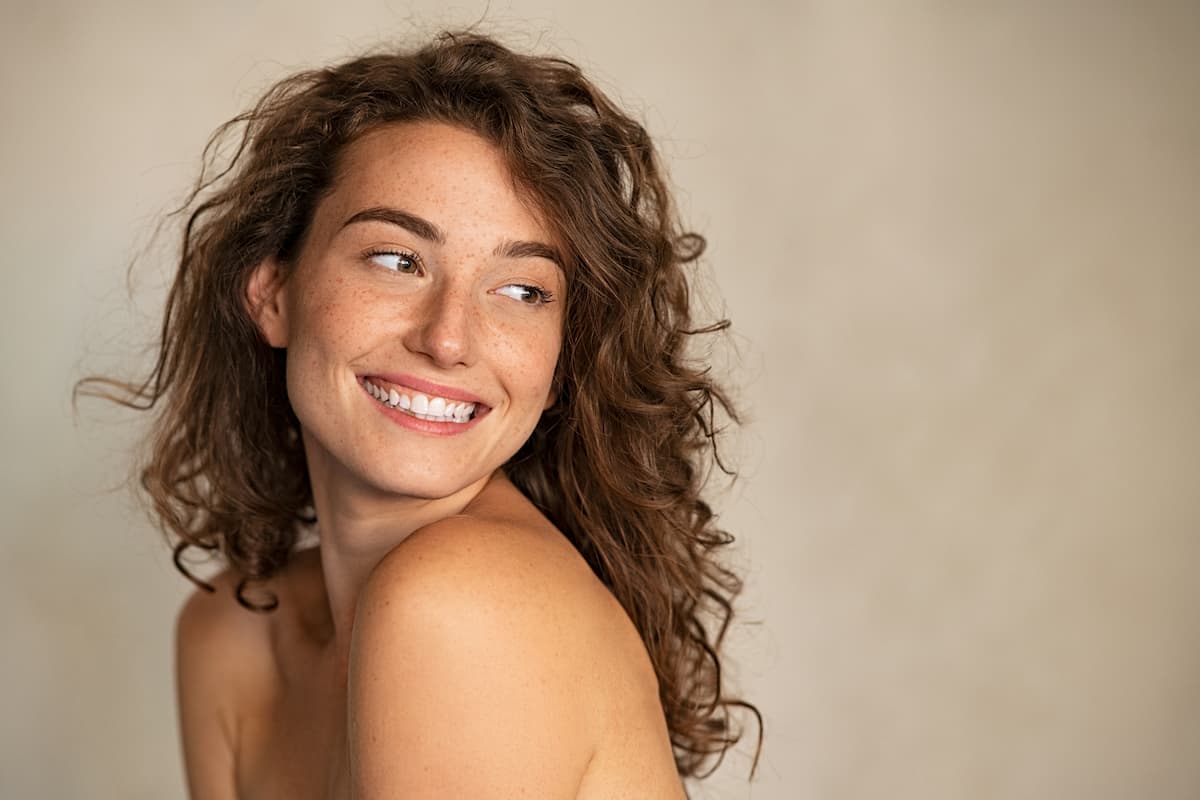
See how to effectively moisturise dry hair.
![Hair oiling: overnight, wet, dry [home remedies].](https://cdn-resources.natu.care/uploads/1/side_view_man_hair_slugging_night_routine_1_95e3d6a24c.jpg)
Everything you need to know to do hair oiling at home.
